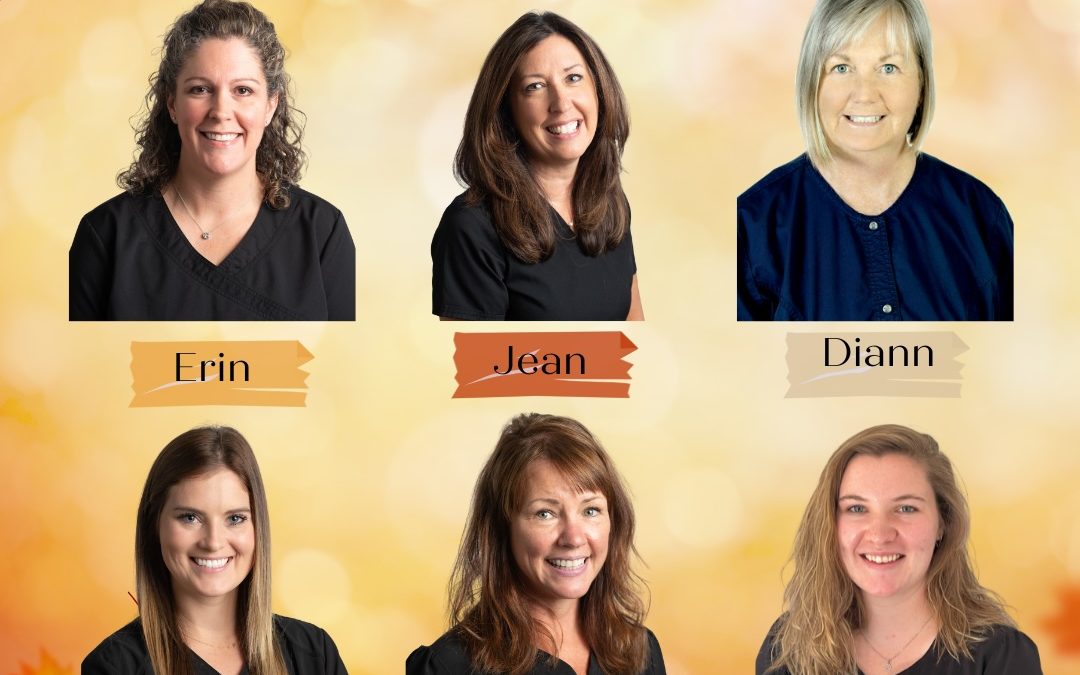
Oct 2, 2024
What have you done for your oral hygiene today? October is National Dental Hygiene Month, a month-long campaign focused on raising public awareness about oral health and hygiene. It’s also a reminder to thank your dental hygienist! At FDA, we have an amazing team of hygienists who are all wonderful ambassadors of excellent oral health: Alex, Diann, Erin, Jean, Kelly, and Lydianne. They are all committed to putting their patients’ comfort first and they love educating others about creating a personalized oral health routine. To help you get to know our rockstar hygienists a little better, they each share what they love about their work:
Alex
“Helping patients feel confident about their smile is such a rewarding experience! I love motivating patients to keep up with their oral care. Also, my goal is always to help patients feel relaxed at their appointment…I want patients to enjoy their visits here at FDA.”
Diann
“I love the enthusiasm created by the whole team learning together. We can branch off and learn about other things and then come back and share. Since we think of things in the long term, I’ve learned that listening today will help tomorrow.”
Erin
“FDA takes the time to get to know patients to create individual treatment plans based on their needs and wants. I love educating my patients about the new developments in dentistry.”
Jean
“The teamwork at FDA is unmatched. Helping hands are everywhere. The dental care is modern, conservative, and thorough; and it’s what I want for my own family.”
Kelly
We go above and beyond for our patients. In fact, I’ve built up a clientele that I’ve seen for so long, I just can’t wait to catch up with them during their next visit.”
Lydianne
“I especially enjoy working with patients who have dental anxiety. Meeting them where they are, addressing their concerns, and identifying what I can do to make them more comfortable is my favorite part of the job.”
Thank you to our incredible hygienists – Alex, Diann, Erin, Jean, Kelly, and Lydianne! You can help honor them by practicing good oral hygiene this month and every month! If you have any questions about oral hygiene tips or want to go over your oral health care routine, give us a call at 207.781.5900. We are here to be your partner in excellent oral health!
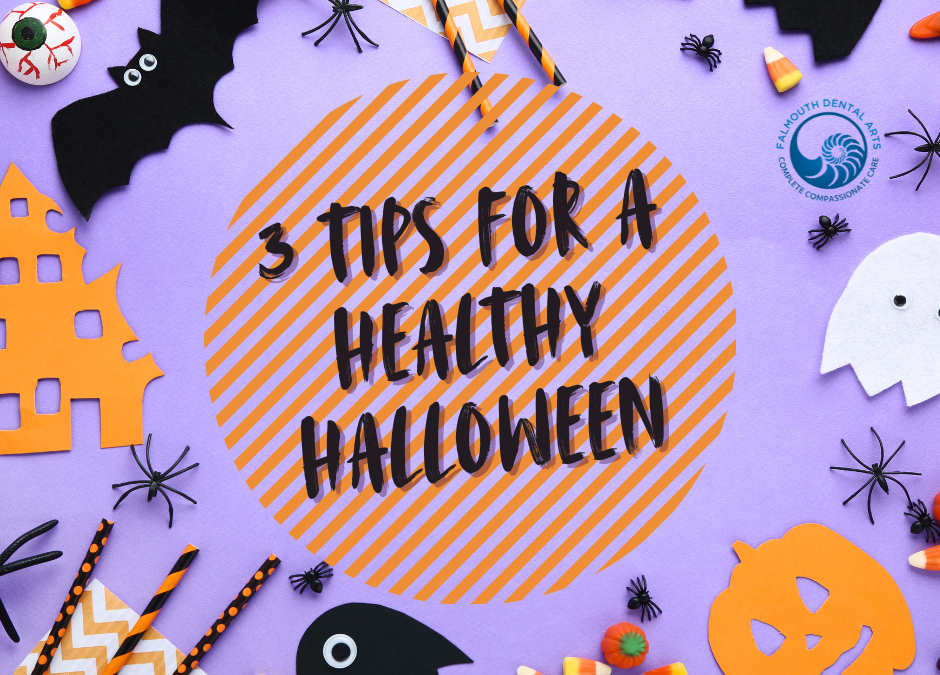
Oct 1, 2024
Witches, ghosts, and CANDY…oh my! At FDA we love the spooky fun of Halloween! We know some of our patients worry that all the trick-or-treating candy can be scary for their kids’ oral health, but there are some easy ways to make Halloween more tooth-friendly. We are passionate about teaching kids and families healthy oral care habits right from the start and have three tips on how to keep it a healthy holiday!
Set a Daily Candy Limit
As with most things, moderation is key! After you marvel at your child’s trick-or-treating haul, set a daily candy limit or quota for them. It’s true that some candy is better than others when it comes to your teeth – sticky and chewy choices tend to linger on the teeth and have been known to cause issues. Limit those, but let your child pick their favorites and then save the rest. Also, since most kids get way more candy than they can eat from trick-or-treating, talk with your kids about donating some of the leftover candy. For example, they can share some of their candy with an organization that sends care packages overseas to active military members. Talk about a feel-good way to limit their candy intake!
Remember to Brush & Rinse
Brushing and flossing is important every day, and it’s extra important on the days your kids are eating candy. If they’ve been enjoying some candy that is especially sticky, encourage your child to floss and brush right afterwards. This will help protect their tooth enamel. Drinking water after eating or drinking anything sugary is also a great cavity preventative. It can help rinse your mouth of bacteria and neutralize any acidity that is present. So, keep you kids brushing and rinsing!
Schedule a Checkup
Regular checkups with Dr. Brunacini and Dr. Karagiorgos are integral to maintaining your child’s oral health, and Halloween is a great reminder to get your kids in for a cleaning. Give us a call at 207.781.5900 if you have any questions about your child’s oral health, or would like to schedule an appointment – we’re here to help keep your kid’s smile healthy and happy!
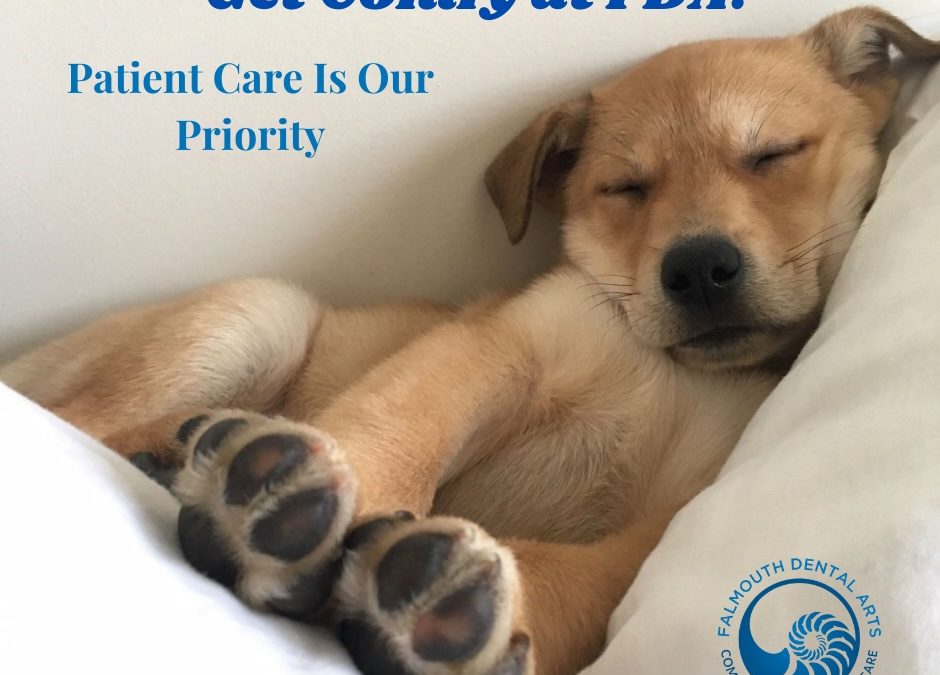
Sep 5, 2024
At Falmouth Dental Arts, patient care is our top priority, and for us a big part of that is making sure you are comfortable. This approach extends to all aspects of our dental practice – from scheduling and payments to the waiting room and the dental chair. Our goal is to develop a partnership with you so you feel connected to our compassionate team and to your oral health care. Let us count the ways we strive to make your oral health care as comfortable as possible.
Our Team
We have the best and most caring dental professionals! Everyone at FDA is committed to patient care and comfort and we all strive to make your visits to our office as easy as possible. From Dr. Brunacini and Dr. Karagiorgos and our front desk team to our Hygienists and Dental Assistants, we love helping you smile! Our compassionate team is always happy to answer questions about your oral health care, demonstrate proper oral health techniques, and go the extra mile so you feel relaxed and comfortable.
Our Approach
Dr. Brunacini and Dr. Karagiorgos don’t just see your smile, they see you as a whole person. We follow an Integrative Dentistry philosophy, which takes your entire wellbeing into account when providing oral care. By approaching dentistry with the whole body in mind, we can better educate and communicate with our patients about their care. Our goal is to form a partnership with you and design a dental plan together that fits your needs and budget. We believe that when you are actively involved in your treatment plans and oral health care, you feel more comfortable and more confident.
Our Technology
Being committed to utilizing the latest dental technologies in our practice means our patients have more options and more solutions in their dental care. From 3D X-Rays to our innovative in-house laboratory that makes same-day crowns for our patients, we are always looking for the best ways to accommodate our patients.
At FDA, we are here to help you get the best and most comfortable dental care possible. If you have any questions or need to schedule an upcoming appointment, please give us a call at 207.781.5900. We are your partner in oral health!
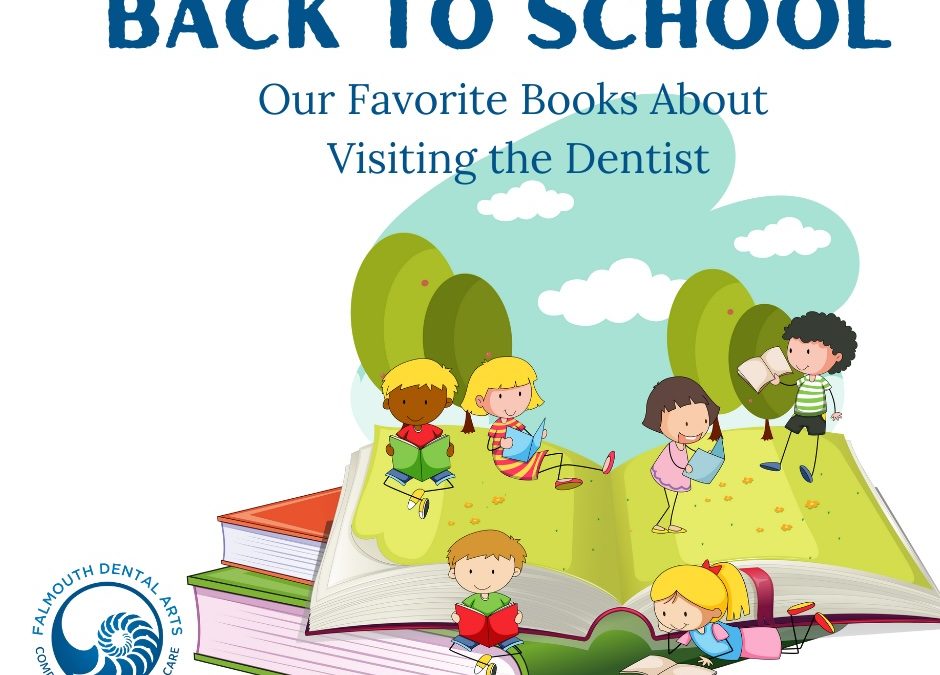
Sep 4, 2024
You can feel it in the air – September has arrived! That means it is back to school time! As you get your child ready for another year of learning and growing, it’s a great time to make sure they have their next check-up with Dr. Brunacini or Dr. Karagiorgos scheduled. At Falmouth Dental Arts, we believe good dental habits start early and we love helping our youngest patients learn more about their oral health. Books are a great way to prepare your kids for what they can expect during a dental appointment and encourage healthy habits. In the spirit of the back to school season, we put together a list of some of our favorite books about visiting the dentist!
Tooth by Leslie Patricelli
It’s an exciting time when your baby gets their first tooth! Your kids will love this colorful and fun board book that will introduce your child to the wonderful world of teeth and how to keep them healthy!
The Berenstain Bears Visit the Dentist by Stan and Jan Berenstain
This book is a classic! Your kids can tag along as the whole Bear Family goes to the dentist to get their teeth cleaned and learn about oral health care. It’s also a great introduction to the tooth fairy!
The Tooth Book by Dr. Suess
Another classic to add to your bookshelves! When it comes to writing that is silly and clever, nobody beats Dr. Suess, and this book teaches kids all about why it’s important to take care of their teeth.
Sesame Street: Ready, Set, Brush
Even monsters need to brush their teeth! This pop-up book features all your favorite Sesame Street monsters as they learn how to brush their teeth and visit the dentist.
The Night Before the Dentist by Natasha Wing
This rhyming story follows a boy on his journey to the dentist for a check up. Filled with helpful details so your child will know what to expect, this is a great book for kids who feel a little nervous about coming in for an appointment.
The list could go on and on…there are so many great books for kids that will help them feel more comfortable about coming in for check ups with Dr. Brunacini and Dr. Karagiorgos and more confident about taking good care of their teeth at home. Reading books together is a great way to talk about the importance of good oral health habits! What are your favorite books about visiting the dentist? Let us know on our Facebook page! If you have questions or need to schedule your child’s next dental appointment, please call us at 207.781.5900. We love helping our patients smile!
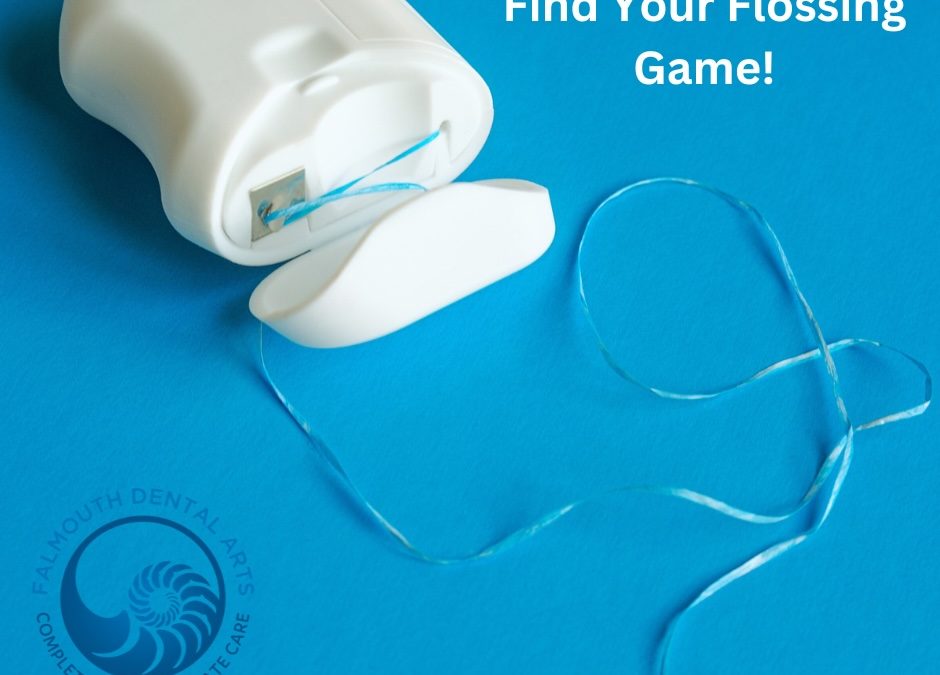
Jul 3, 2024
When was the last time you flossed? If it’s been awhile, you need to find your flossing game! Flossing is an important part of oral healthcare – as important as brushing! – and crucial to preventing gum disease. We know it can be difficult to fit flossing into your daily oral health routine. Don’t worry, the FDA team has you covered! Here are ways you can find your flossing game and clean those hard to reach places between your teeth!
Find the Right Time
What is the best time to floss? Anytime you will do it! If you find you’re tired at the end of the day and flossing is just too much to add to your nighttime routine, then try flossing in the morning! If your mornings are too hectic, try flossing after lunch! It doesn’t matter when you floss, it just matters that you make time for this healthy habit. Many of our hygienists love packing some Plackers in their purse so they can floss on the go!
Find the Right Floss
Some people find traditional flossing difficult. Whether it’s because you have mobility issues or because you have braces, that extra hurdle to flossing can make it feel impossible. Fortunately, there are alternatives you can explore!
- Water Flossers: You may have experienced this product in our office. Water flossers provide a way to clean around and between your teeth with a pressurized steady stream of water. They can be particularly helpful for patients with braces, dental bridges, dental implants, or gum pocketing. Look for one with the American Dental Association Seal (ADA) of Acceptance and get flossing!
- Interdental Brushes: These small, cone-shaped brushes are designed to be inserted gently between your teeth and can be rinsed and reused a few times. Combined with daily brushing, they can be as effective as flossing. Patients with braces, food traps, dental bridges, or mobility issues may find this is a good alternative.
Whichever option you choose, and whatever time of day works best for you, the most important thing to remember about flossing is to do it! So, find a routine that works for you and stick with it…your teeth and your gums will thank you! If you have any questions about flossing or need to schedule your next appointment, please give us a call at 207.781.5900. We are here to support you and provide the best oral health care possible!





